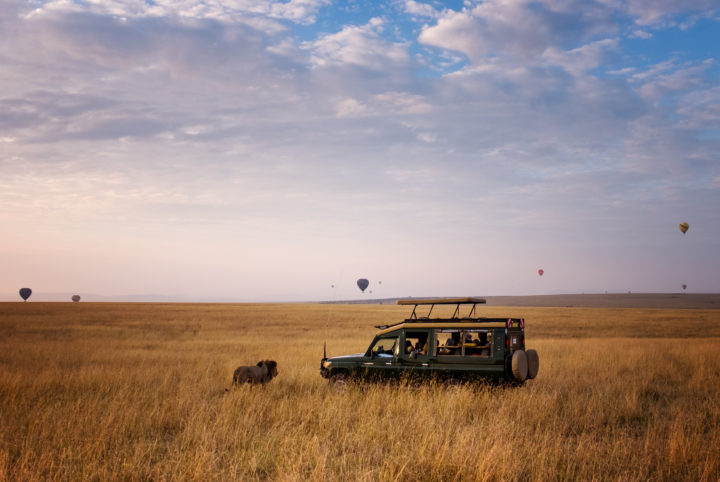A safari is a type of tourist activity that gives people the chance to see exotic animals, explore natural landscapes and learn about other cultures. They offer both adventure and relaxation, which makes them a popular choice among travelers who want to do something different and memorable.
Over the past decades, safaris in Africa have become increasingly popular with countries such as Kenya, Tanzania, and South Africa being top destinations for wildlife enthusiasts. As ecotourism has grown, people have been trying to use sustainable tourism practices to protect endangered species and help local communities.
A new trend promises to take safaris to the next level. Vegan safaris are emerging for animal lovers to experience African wildlife, while adhering to their plant-based lifestyle. These safaris often focus on conservation, ethical animal encounters and plant-based meals. An article from National Geographic reported that vegan safaris came as a response to traditional safaris, which typically hurt the ecosystem and environment of the area. In popular parks, people unintentionally can harm the wildlife. The animals can not only be injured, but also their habitats can be destroyed.
At a vegan safari, travelers can contribute to the protection and conservation of African wildlife and their habitats and enjoy a one-of-a-kind experience. In addition, travelers will support local communities that emphasize environmental sustainability. Members of People for the Ethical Treatment of Animals (PETA) say that because more travelers are plant-based, these safaris are not only more accessible and sustainable, but also create a new way to make money.
Travel Noire gathered four vegan safaris worldwide to consider when planning their next African adventure. These tours provide unique chances to get close to the wildlife while helping local communities and traveling ethically. Some of these safaris include trips to places that are good for animals and meals made by local vegan chefs.
Vegan Safari Africa
Destinations: Botswana and South Africa
Locally sourced, fresh, whole-food vegan meals are served at the lodges and on mobile camping safaris. The Okavango Delta is a UNESCO World Heritage Site. Both the wildlife concessions in Ngamiland and the Moremi Game Reserve on its eastern border protect it. Vegan Safari Africa aims to promote responsible tourism in all of its practices.
World Vegan Travel
Destinations: Botswana, Rwanda, and South Africa
World Vegan Travel offers tours, meals and activities selected by vegans for vegans at luxury lodges and quaint inns. The company offers guided walks through a forested primate sanctuary, an afternoon river cruise to see birds and monkeys, rhino conservation lessons and traditional African vegan cooking with a local chef.
Every aspect of the experience is checked to see how it affects animals and the environment. World Vegan Travel was built to have the least impact on this fragile ecosystem and its animals.
Kings Camp’s Safari
Destination: Kruger National Park, South Africa
Kings Camp offers vegan wine and cheese tastings, gourmet vegan food and cruelty-free spa services. This luxury safari faces a Timbavati Private Nature Reserve savanna with a wildlife-filled waterhole. A certified vegan hospitality consultant and vegan safari guide ensure the best camp experience. The Moholoholo Wildlife Rehabilitation Centre, rhino anti-poaching flights, and wild horse flights are some of the things offered by this vegan safari.
Alluring Africa’s Safari
Destinations: Botswana and South Africa
The vegan safari lodges run by Alluring Africa have vegan food and toiletries that aren’t tested on animals. There are no animal skins or trophy heads in sight.
At La Colombe, vegan guests can enjoy a dinner with several courses, high tea with a view of Cape Town and wine tasting. Its tours give animals space and respect, which helps to minimize disturbance.
